- News
- Reviews
- Bikes
- Accessories
- Accessories - misc
- Computer mounts
- Bags
- Bar ends
- Bike bags & cases
- Bottle cages
- Bottles
- Cameras
- Car racks
- Child seats
- Computers
- Glasses
- GPS units
- Helmets
- Lights - front
- Lights - rear
- Lights - sets
- Locks
- Mirrors
- Mudguards
- Racks
- Pumps & CO2 inflators
- Puncture kits
- Reflectives
- Smart watches
- Stands and racks
- Trailers
- Clothing
- Components
- Bar tape & grips
- Bottom brackets
- Brake & gear cables
- Brake & STI levers
- Brake pads & spares
- Brakes
- Cassettes & freewheels
- Chains
- Chainsets & chainrings
- Derailleurs - front
- Derailleurs - rear
- Forks
- Gear levers & shifters
- Groupsets
- Handlebars & extensions
- Headsets
- Hubs
- Inner tubes
- Pedals
- Quick releases & skewers
- Saddles
- Seatposts
- Stems
- Wheels
- Tyres
- Health, fitness and nutrition
- Tools and workshop
- Miscellaneous
- Cross country mountain bikes
- Tubeless valves
- Buyers Guides
- Features
- Forum
- Recommends
- Podcast
review
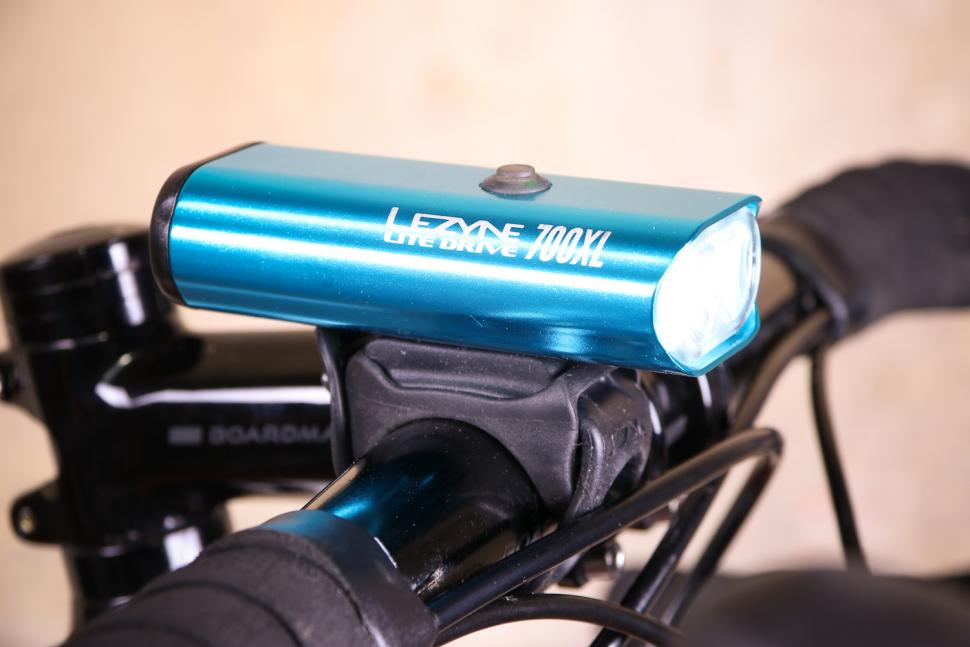 Lezyne Lite Drive 700 XL.jpg
Lezyne Lite Drive 700 XL.jpg£56.99
VERDICT:
Good value front light with enough output for most road use, lots of modes and acceptable battery life
Weight:
150g
Contact:
At road.cc every product is thoroughly tested for as long as it takes to get a proper insight into how well it works. Our reviewers are experienced cyclists that we trust to be objective. While we strive to ensure that opinions expressed are backed up by facts, reviews are by their nature an informed opinion, not a definitive verdict. We don't intentionally try to break anything (except locks) but we do try to look for weak points in any design. The overall score is not just an average of the other scores: it reflects both a product's function and value – with value determined by how a product compares with items of similar spec, quality, and price.
What the road.cc scores meanGood scores are more common than bad, because fortunately good products are more common than bad.
- Exceptional
- Excellent
- Very Good
- Good
- Quite good
- Average
- Not so good
- Poor
- Bad
- Appalling
As the entry-level light in Lezyne's Performance range, the Lite Drive 700XL offers enough brightness for riding in the pitch black at a price that is pretty competitive.
- Pros: Sensibly priced, plenty of lumens, a good range of modes
- Cons: Fiddly charger port
The light has an anodised metal body, with a simple rubber strap to fix to the handlebar. So far, so Lezyne. One thing you couldn't accuse Lezyne's range of is wilful and confusing variety. The five Performance lights are all very similar indeed, with a range of output levels and battery run-times.
> Find your nearest dealer here
They all appear to have the same mounting mechanism, the same range of modes and the same control system, so you just choose how much light you want (or how much money you want to spend) and pick the one for you.
Fitting it is simple with the classic stretchy rubber strap. It's very quick to swap between bikes, although the downside is that it's not held in place as rigidly as some more engineered mounting solutions. Generally I found it stayed where I put it, but rattling through a pothole would be enough for it to swing forwards. Often the solution to this is to hang the light underneath the handlebar, although that can be tricky here as it can foul on the brake and gear cables.
Operation is straightfoward, and a lot like many other lights: long press on the button to switch on and off, and short presses to cycle through the modes.
There are a total of eight output modes – five are constant, ranging from the full 700 lumen Overdrive mode to the 15-lumen Femto mode. There's also a day flash mode, which is two short flashes, repeated once per second. This uses the full 700 lumen output, and so is pretty eyecatching and effective at getting you noticed. A further flash mode uses a much lower power and single flashes, giving longer run-times.
The final mode is Pulse, which is much like you'd imagine – a gentle pulsing on and off.
Run-time on full Overdrive mode is a scant hour and a half, but I found that the second most powerful constant mode ("Blast", 400 lumens) was enough for most night-time riding, and has a run-time of three hours.
Generally, run-times match those claimed, although I'm afraid I didn't put the stopwatch on the Femto mode, which should run for a whopping 76 hours.
A neat feature, which is a bit of a Lezyne signature dish, is the "race mode", which allows you to limit it to just two modes (the 700-lumen overdrive and 150-lumen economy). The advantage is that it keeps things simple and avoids the dreaded moment where you have to cycle it via a flash mode to get back to high-power, depriving you of light at the precise moment you decided you needed more of it.
Lezyne doesn't specify which type of LEDs are used other than to describe them as "ultra high output". They are closely spaced, each with their own lens, and generate a beam that is broadly circular, although as you can see, above, from our tests, it is brighter towards the lower half and with a slight darkening in the upper left hand corner. My suspicion is that this is more down to assembly tolerancing and variability than a deliberate attempt to offer a cut-off beam. I found it relatively straightforward to direct it such that the bright central area was on the road in front of me rather than into drivers' eyes.
Comparing to other lights in the same price bracket using our comparison tool, it must be said that a number of lights with a claimed 600 lumens appear to outshine the Lezyne (on 700 lumen Overdrive mode), for example the Cygolite Dash Pro 600 and the (admittedly more expensive) Knog PWR Road 600. This goes to show that manufacturers' claims of lumen output don't necessarily offer a perfect comparison. The housing has cutouts either side of the lens to allow some light to spill out to the sides, and this certainly helps with all-round visibility.
> Buyer's Guide: 55 of the best 2017/2018 front lights for cycling
Commuting during the winter months, I tend to use a daytime flash mode in the mornings and a mixture of steady modes for the way home. With a 30-35-minute journey in each direction, I found that I could get three or four days before I needed to recharge. That's a lot less than when using larger (more expensive) lights with larger batteries, but the good news is you get plenty of warning via the battery light indicator, so I never found it ran out of charge unexpectedly.
The power button lights up green when full, yellow when below 50 per cent, red when below 10 per cent and flashes red when below 5 per cent. In reality, it errs commendably on the side of the conservative, such that I found I had enough juice left to get me home even when deliberately leaving the office with it flashing red.
Charging is via the ubiquitous (for now... USB C is on the way, folks) micro USB socket. It's concealed behind a chunky rubber bung on the back of the light, which does a very good job of keeping water out, but is also quite effective at keeping some of my USB cables out. The supplied cable fits in fine, but the moulded part of the plug of some of the charger cables I had lying around wouldn't fit through the hole; an issue because the actual socket is recessed 13mm into the light. This does make it fiddly to connect up, and I think that it's an area where the light could be improved.
Overall, the Lite Drive has a decent level of output for a pretty reasonable price. The battery capacity is less than some other lights, but it gives you plenty of warning when it's running down. There's a very good range of modes making it suitable for a variety of environments from the busy urban street to full-on dark road riding. Connecting a charger is a bit of a fiddle, mind.
In the same price bracket, the Cateye Volt 400 is well worth a look (I've tested the 300 and the 1600 and both are superb), although the maximum output is quite a bit less, while the Moon LX360 has a much more tightly focused beam that doesn't give a lot of peripheral vision on dark roads.
Verdict
Good value front light with enough output for most road use, lots of modes and acceptable battery life
road.cc test report
Make and model: Lezyne Lite Drive 700XL
Size tested: Max Lumens 700
Tell us what the light is for, and who it's aimed at. What do the manufacturers say about it? How does that compare to your own feelings about it?
Lezyne says: "A high-performance multi-purpose LED cycling light.
"High-performance multi-purpose LED cycling light. Compact, durable and heat-dissipating machined aluminum body. Ultra high-output LEDs producing up to 700 lumens. Eight mode options, including the ultra high-visibility Daytime Flash mode. Optional Overdrive Race Mode toggles between Overdrive and Economy modes only. Mode Memory function returns to selected mode after turning off. Enhanced MOR (Maximum Optical Reflection) lens with built-in side visibility. High-speed 2 Amp USB charging capabilities (with compatible wall adapter). Versatile strap securely mounts to all standard bar shapes, including aero bars. Advanced Li-Ion battery for superior run time."
Tell us some more about the technical aspects of the light?
Max output: 700 lumens (claimed)
Weight: 150g (claimed weight is 114g, maybe excluding the bracket?)
Run time: 1h30 - 76 hours depending on mode
Rate the light for quality of construction:
7/10
Generally well-made aluminium housing and simple but reasonably effective rubber strap mounting.
Rate the light for design and ease of use. How simple was the light to use?
8/10
Mostly standard but with the added bonus of Lezyne's signature "race mode" which cuts the outputs to just two – low and high – if you don't want to have to cycle through all the others. Nice touch.
Rate the light for the design and usability of the clamping system/s
6/10
Simple stretchy rubber strap does the job and makes switching from one bike to another simple. It doesn't play as nicely with cables if you want to hang the light under your handlebar as some lights, and it's also not rock steady over bumpier tracks.
Rate the light for waterproofing. How did it stand up to the elements?
7/10
Survived 5 minutes under a shower without an issue plus a few drizzly rides.
Rate the light for battery life. How long did it last? How long did it take to recharge?
6/10
Pretty much as claimed. It's not class-leading in this respect but it's not bad given the output available and the price. The deeply recessed USB charger socket won't win many friends – it's one of the most fiddly lights to charge that I've used.
Rate the light for performance:
8/10
In the higher power modes there's enough light to go pretty quickly along dark lanes, which is impressive at this price point.
Rate the light for durability:
6/10
No issues during testing. My previous experience with Lezyne lights suggests its batteries aren't as durable as some (and there's no simple way of replacing them), but it's early days with this one.
Rate the light for weight:
8/10
Rate the light for value:
8/10
It's a decent light for sensible money.
Tell us how the light performed overall when used for its designed purpose
It did a good job for my commute which goes out of town on some darker roads. Impressive illumination for not a whole pile of cash, with acceptable battery life.
Tell us what you particularly liked about the light
Good output, good indication of remaining battery, good choice of modes and power levels.
Tell us what you particularly disliked about the light
The strap doesn't hold it as well as some. The USB socket is fiddly and not compatible with some cables.
Did you enjoy using the light? Yes
Would you consider buying the light? Yes
Would you recommend the light to a friend? Maybe
Use this box to explain your score
It's impressive to get this sort of output from something so small and relatively inexpensive. Yes, the strap mounting isn't my favourite, and the recessed USB socket is annoying, but I reckon this is a good value light with enough output for most road use.
About the tester
Age: 37
I usually ride: On-one Bish Bash Bosh My best bike is: Rose X-Lite CRS
I've been riding for: Over 20 years I ride: Most days I would class myself as: Expert
I regularly do the following types of riding: road racing, time trialling, cyclo-cross, commuting, touring, club rides, sportives, general fitness riding, fixed/singlespeed, mountain biking
Jez spends his days making robots that drive cars but is happiest when on two wheels. His roots are in mountain biking but he spends more time nowadays on the road, occasionally racing but more often just riding.
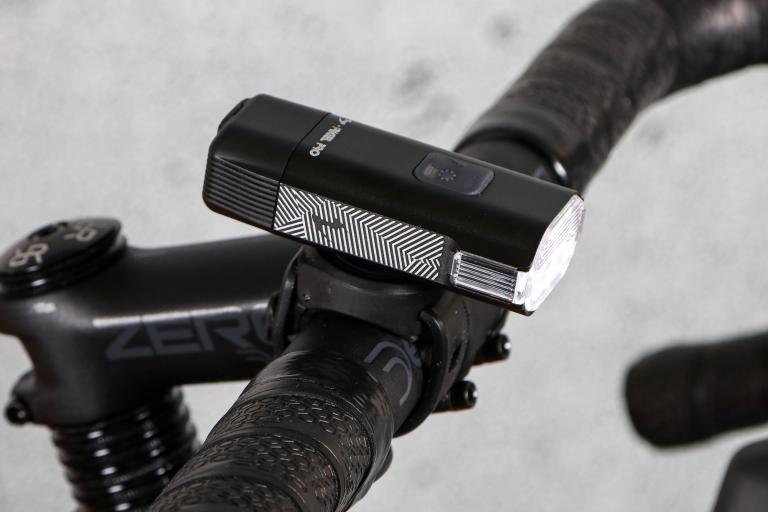
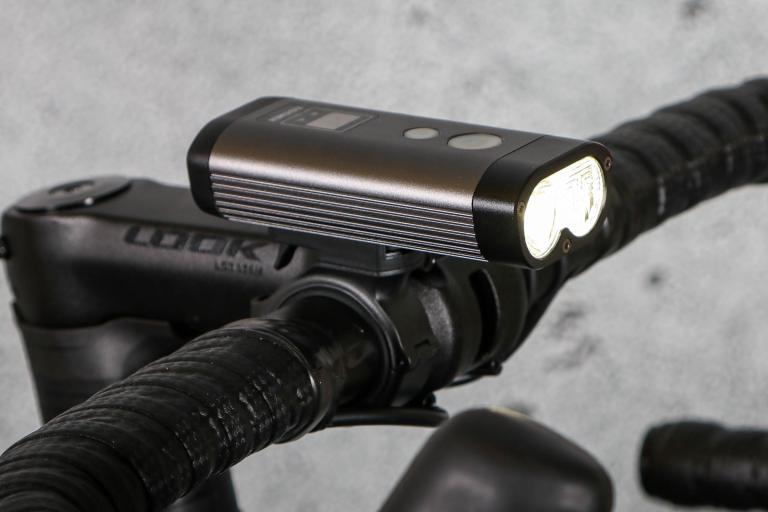
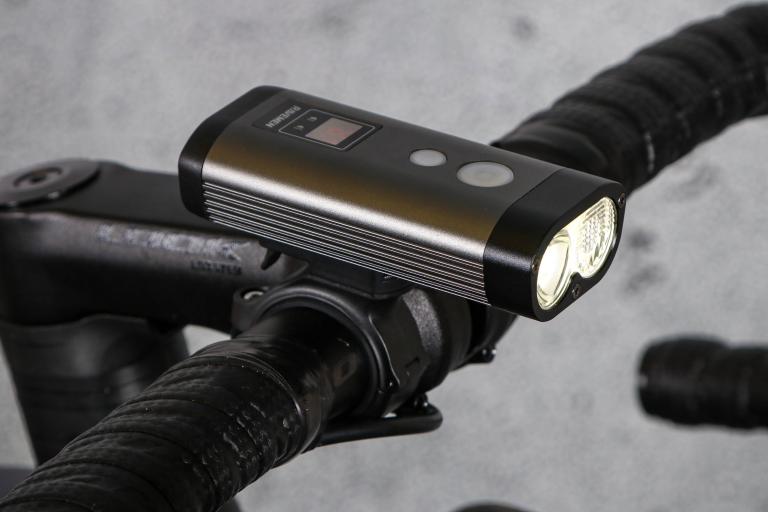
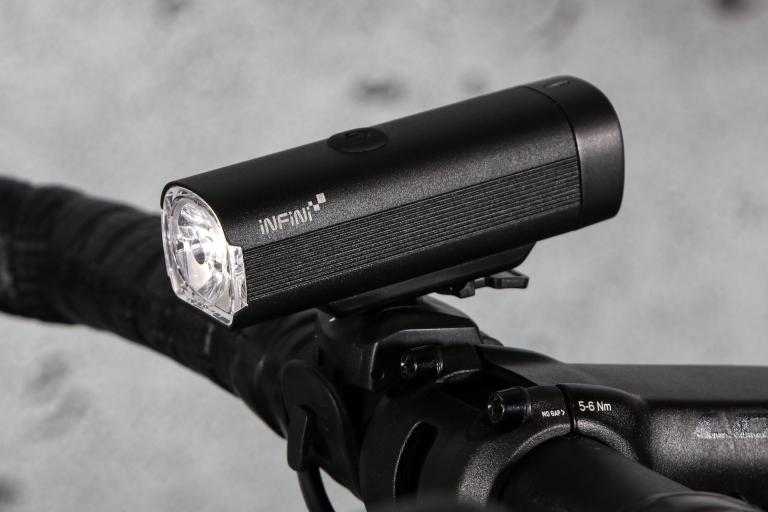
I'm not sure what authority Trump has to remove cycle lanes in New York. Or maybe he's going to get Elon to send some goons to paint over them.
Mechanical shifters are recharged by eating food as you ride. Just saying....
Wattbike must have suffered from the rise of the cheaper gyms that are probably less likely to buy higher-end static bikes and go with cheaper spin...
"covering 13,000km over seven days" - that would be QUITE a pace. It should read 1,300 km.
“They (the police or witnesses?) said it was Waugh's car that had veered towards Mr Morris..." Why prosecute a human for the actions of the car?
For a typical garage thief, I'd imagine that the ordinary has been sold off for scrap by now…
Looks like they just painted a clay mould... The actual frame has been tossed in the bins at their workshop.
Are they least acceptable when unlicenced or unlicensed though?
Here in NL a lot of the bike shops use a ceiling mounted hoist to lift bikes rather than workstands. Not surprising, some bikes like the transport...
Well the entry-level requirement of their job is that they persuade everyone * they're great. Or at least better than the other options......